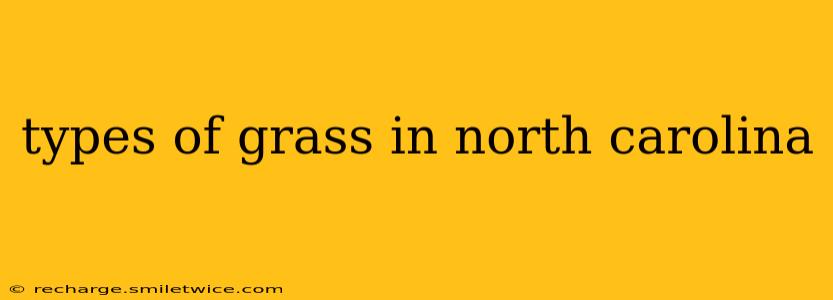North Carolina's diverse climate, ranging from the mountains to the coast, supports a wide variety of grasses, each with its own unique characteristics and best uses. Choosing the right grass for your North Carolina landscape is crucial for a healthy, vibrant lawn that requires minimal maintenance. This guide explores popular grass types, their ideal growing conditions, and helps you make an informed decision based on your specific needs.
What are the most common types of grass in North Carolina?
North Carolina homeowners commonly use several grass types, each suited to different environments and preferences. The most prevalent include:
-
Tall Fescue: A cool-season grass renowned for its durability, shade tolerance, and relatively low maintenance requirements. It thrives in the state's cooler regions and is a popular choice for lawns across much of the state. Multiple cultivars offer varying degrees of disease resistance and wear tolerance.
-
Zoysia: A warm-season grass prized for its fine texture, excellent wear tolerance, and attractive dark green color. Zoysia grasses are drought-tolerant and relatively low-maintenance, making them ideal for sunny areas with well-drained soil. However, they are slower to establish than some other grasses.
-
Bermuda: Another warm-season grass, Bermuda is known for its aggressive growth habit, heat and drought tolerance, and excellent wear tolerance. It's a common choice for athletic fields and high-traffic areas but requires more frequent mowing than other options.
-
Bahia: A warm-season grass that is highly adaptable, thriving in poor soil conditions and tolerating drought exceptionally well. Bahia is often used in areas where other grasses struggle, offering a low-maintenance option for tough landscapes. However, it's less aesthetically pleasing than other options.
-
** Centipede:** A warm-season grass that does well in acidic, sandy soils common in the coastal plains. Centipede grass is low-maintenance, and relatively drought-tolerant, but it's sensitive to heavy foot traffic and requires fertilization to maintain a healthy color.
What type of grass is best for shade in North Carolina?
Tall Fescue is the champion of shade-tolerant grasses in North Carolina. Its ability to thrive even in low-light conditions makes it a popular choice for areas with significant tree cover or buildings that cast shadows. However, even shade-tolerant grasses require some sunlight to photosynthesize effectively.
What is the best grass for full sun in North Carolina?
For full sun conditions, Zoysia and Bermuda grasses generally excel. Their resilience to heat and drought makes them perfectly suited for sunny locations. The choice between them often depends on the level of maintenance you are willing to undertake, with Bermuda requiring more frequent mowing.
What kind of grass grows best in clay soil in North Carolina?
Clay soils can be challenging for grass establishment due to poor drainage. Bahia grass is remarkably tolerant of poor soil conditions, including clay, and its drought tolerance is a bonus. However, improving the soil's drainage by amending it with organic matter before planting any grass is always recommended.
Which grass is best for low maintenance lawns in NC?
For low-maintenance lawns, Zoysia and Tall Fescue are excellent contenders. While Zoysia requires less mowing, Tall Fescue's shade tolerance can reduce the need for supplemental watering, especially in areas with some tree cover. Bahia grass is also a great low-maintenance choice but might not offer the aesthetic appeal of the others.
How do I choose the right grass for my yard in North Carolina?
Choosing the right grass type for your North Carolina yard involves careful consideration of several factors:
- Sunlight: How much sun does your yard receive daily?
- Soil type: Is your soil sandy, clay, or loamy? What is the pH level?
- Water availability: How often can you water your lawn?
- Traffic: How much foot or vehicle traffic does your lawn experience?
- Your personal preferences: Do you prioritize ease of maintenance, aesthetic appeal, or other factors?
By considering these factors and researching the specific needs of each grass type, you can choose the best grass to create a beautiful and thriving lawn in your North Carolina landscape. Consulting with a local landscaper or agricultural extension office can provide further personalized guidance.
